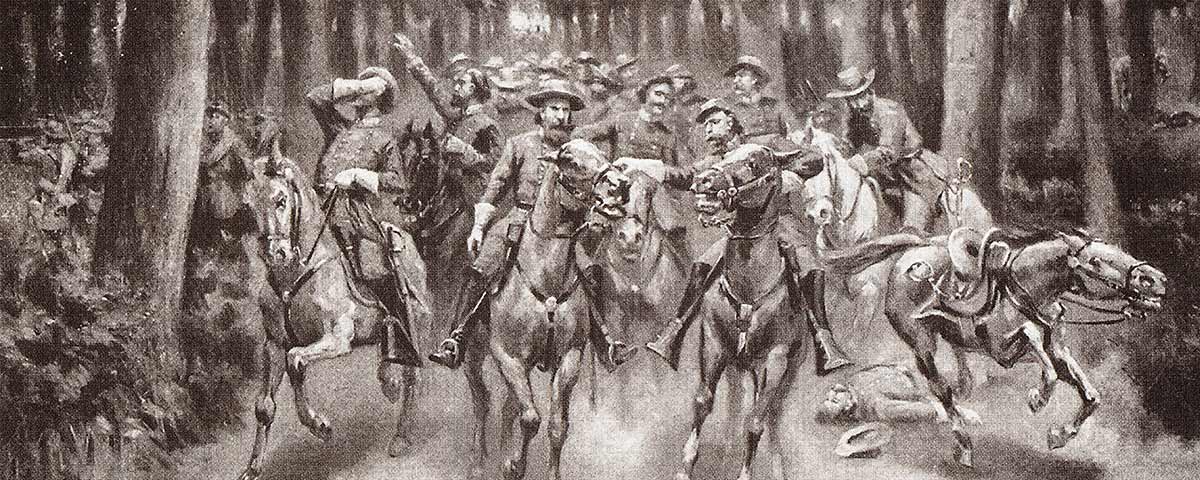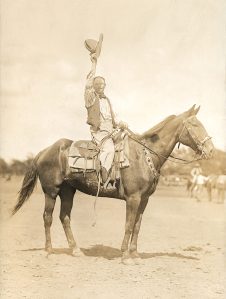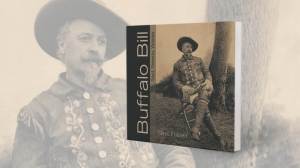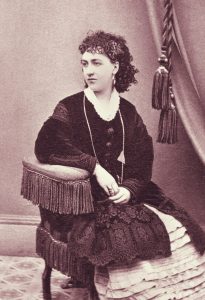The War in Their Words: A staff officer recalls the moment when friendly fire nearly killed one of the confederacy’s top generals
[dropcap]T[/dropcap]he following article about the wounding of Confederate Lt. Gen. James Longstreet at the Battle of the Wilderness on May 6, 1864, appeared in several Northern and Southern newspapers, including the Savannah Republican and then the New York Commercial Advertiser, in December 1865. The piece is unsigned, but the author was probably Francis Dawson, a captain and ordnance officer on Longstreet’s staff. Dawson’s Reminiscences of Confederate Service, published in 1883, has an account of Longstreet’s wounding that includes two quotes from the ill-fated General Micah Jenkins that are nearly identical to those in the December 1865 newspaper accounts.
[dropcap]A[/dropcap]n earlier statement by Dawson describing Longstreet’s injury appears in a June 1, 1864, letter written by the staff officer to his mother, published in the 1980 reprint of Reminiscences, edited by noted historian Bell Wiley. “This was my narrowest escape,” Dawson wrote his mother. “There were about eight of us together, all mounted, Gen. Longstreet and four of his staff officers including myself, Gen. [Micah] Jenkins, a Capt. Dwight [probably Charles S. Dwight, an engineer officer on the staff of Maj. Gen. Joseph B. Kershaw] and a Capt. Dobie [Lieutenant Alfred E. Doby of Kershaw’s staff]. Without a moments warning, one of our brigades…only 50 or 60 yards distants [sic] poured a deliberate fire into us. Longstreet was badly wounded, Gen. Jenkins, Capt. Dwight & Dobie killed on the spot; I was not even scratched….Gen. Longstreet weighs over 200 lbs. and he was lifted from his horse by Col. [Moxley G.] Sorrel, Col. [Peyton T.] Manning and myself.”
Longstreet’s wounding came in the wake of a dramatically successful Southern flank attack described by Dawson. Longstreet had hoped to capitalize on this movement by mounting additional attacks to seize the intersection of the Orange Plank Road and Brock Road. Unfortunately for the Confederates, Longstreet’s wounding and the disordered condition of the Southern forces delayed the attacks for several hours. When the Confederates finally advanced again around 4 p.m., they achieved only temporary success along a stretch of log breastworks where fires drove off Union defenders.

After the Civil War, prominent ex-Confederates like Walter Taylor of General Robert E. Lee’s staff and Brig. Gen. Edward Porter Alexander claimed that if Longstreet had not been wounded, continued Confederate attacks would have spread further panic in the Union ranks, ultimately resulting in Grant withdrawing the Army of the Potomac back across the Rapidan River. Modern historians, including Gordon Rhea and Robert E.L. Krick, conclude instead that the Confederates’ chances of achieving a decisive battlefield victory at the Wilderness were slim. While Longstreet’s flank attack initially routed the Union forces under Maj. Gen. Winfield Scott Hancock, within a half-hour of the attack the Federals had fallen back to a strong entrenched line along the Brock Road. Even if Longstreet had not been wounded, it seems doubtful he could have aligned the mixed-up Confederates in the dense thickets of the Wilderness for further attacks before the Federals had fallen back to their entrenchments on the Brock Road and strengthened the position.
Dawson, a native of England born in 1840, emigrated to the Confederacy in the second half of 1861 to enter the Southern army. Initially accepting a commission as a master’s mate in the Confederate Navy with a post on the ironclad Louisiana, Dawson decided not to pursue naval service when he learned of the Louisiana’s destruction on the Mississippi River while defending New Orleans. Instead, Dawson volunteered in a field artillery battery, sustaining a wound in the opening of the Seven Days Battles. Upon recovering, Dawson received a commission as lieutenant and a position on Longstreet’s staff.
Throughout the remaining campaigns of 1862 and 1863, Dawson served under Longstreet. Moxley Sorrel of Longstreet’s staff described the young Englishman as a “thoroughly competent” officer who “acquitted himself well under fire.” Following Longstreet’s wounding at the Wilderness, Dawson served for several months under the First Corps commander’s temporary successor, Lt. Gen. Richard H. Anderson. In November 1864, Dawson accepted a transfer to the staff of Maj. Gen. Fitzhugh Lee, commander of the Army of Northern Virginia’s Cavalry Corps.
After the surrender of Lee’s army, Dawson became a journalist, first in Richmond, Va., and then in Charleston, S.C. Throughout the 1870s and 1880s, Dawson was editor of one of the South’s leading newspapers, the Charleston News and Courier. He was shot and mortally wounded on March 12, 1889, during a confrontation with a Charleston doctor whom Dawson had accused of making improper advances against Dawson’s Swiss-born family maid.
Gen. Longstreet and the Battle of the Wilderness May 6, 1864
[dropcap]T[/dropcap]he old First Corps of the Army of Northern Virginia had but little rest when there was any hard fighting to be done. After the second Maryland [Gettysburg] campaign, we had been sent out to the Army of Tennessee; our corps had maintained the high reputation of the “Virginia troops;” at the bloody battle of Chickamauga the old Sharpsburg sobriquet was set aside, and General [James] Longstreet, no longer called the “War Horse,” was generally known among the men as the “Bull of the Woods.” Then came the skirmishes of “Le Noir’s” and “Campbell’s” Station, the siege of Knoxville, and the terrible Winter of 1863-4 in desolate East Tennessee.
Our men had borne, unceasingly, hardships greater than any to which even they had before been accustomed; they had not complained, although with insufficient food, without blankets, with ragged clothing, and too often without shoes, they had tramped with bleeding feet for many a weary mile. On the march, and in bivouac, during the freezing day and comfortless night, in hunger and in thirst, they had been sustained by the remembrance of their dear Southern homes and dearer Southern land. All things, however, have an end, and in the Spring of 1864 we joyfully returned to Virginia.
On the 3rd of May, 1864, we left our camps, near Gordonsville, and on the night of the 5th went into bivouac a few miles from the Wilderness. By daybreak in the morning the troops were again in motion, and marching toward the field of battle! The Federal troops had made a fierce attack upon the right of General Lee’s line, and had been repulsed. Again they came on and in increased force, until at last [General Henry] Heath’s and [General Cadmus] Wilcox’s divisions, in spite of their steady and determined fighting, were driven back in confusion. With a cheer the Federal troops pushed forward; our exhausted men could do no more; there seemed no hope of further successful resistance; but there was a cloud of dust on the road, and General Longstreet, followed by his column, came rapidly on. [General Joseph B.] Kershaw’s division was in advance; without halting, the men filed into line, and charged with a furious yell.
Nothing could stand before them—they were inspired with furious unhesitating valor—the onset of the enemy was checked, and the next moment they were being slowly driven back. Repeatedly did the Federal officers bring up their shattered regiments; reinforcements were put in only to be speedily broken, and the arrival of [General Charles] Field’s division and the magnificent body of men commanded by General Robert [Richard H.] Anderson, enabled General Lee to re-establish his original line. We had lost heavily, many of our most gallant men had fallen; but the reverse of the early morning had been retrieved, and our success was so far complete.
It is well known that the section of country usually called the “Wilderness” is covered with a dense growth of pines, the undergrowth of bushes and briars being so matted and tangled that it is very difficult to force a way through it, while at a distance of forty or fifty yards the form of men could scarcely be distinguished by any but a quick-sighted observer. The Federals were now resting comparatively quiet, taking, perhaps, a long breath before “trying it on” again; but they were not to have it all their own way, and we, in turn, became the aggressors. [General William] Mahone’s brigade, with I think, two others, was ordered to move around and attack Grant’s left; Generals Lee and Longstreet, lying on the ground near the plank road, quietly awaited the result.
The rapid firing quickly told us that the “boys” were at them; and, before long, a mounted officer rode up to announce the successful completion of the movement. Grant’s left had been routed and driven back on the centre, and the plan now was to make a vigorous assault while the iron was hot, and so finish the work before us. The whole of our corps was in readiness to move, and General Longstreet and staff rode down the plank road where a portion of the corps was already formed in column. We had ridden but a short distance, when Lieutenant Colonel G.M. S[orrell], Assistant Adjutant General of the First Army Corps, joined us.
He had accompanied the flanking party, winning the hearts of Mahone’s brigade by a chivalrous gallantry, akin to that which they had shown on many a bloody field; and he now brought us the most encouraging accounts of the position of affairs. General [Micah] Jenkins, a noble son of South Carolina, an admirable officer and courteous gentleman, was also with us, and his face was lit up with joy and confidence as he congratulated the “old chief.” It was now proposed to give three cheers for General Longstreet; and Jenkins, fearing lest his men should appear to be behind time, called out, “Why don’t you cheer, men? Why don’t you cheer?” The air fairly rang with lusty shouts; again and again the men cheered, till the voices were cracked and tears of exhaustion ran down many a dusty cheek. Every heart was confident and gay—and so we moved forward.
A Bad Week for Generals
A recent donation to the NPS testifies to the Overland Campaign’s carnage

 Just days after Longstreet’s wounding, Union Maj. Gen. John Sedgwick fell to a Confederate bullet on May 9, a few miles north of Spotsylvania Court House. He was the highest ranking United States soldier to be killed during the Civil War. Sedgwick, commander of the Army of the Potomac’s 6th Corps, was well liked by his staff. “He was like a kind father to them, and they loved him really like sons,” wrote one observer. No staff member was perhaps closest to the general than his aide-de-camp, Captain Richard F. Halsted, who certainly witnessed the death of his chief. Captain Halsted and two other staff members then accompanied Sedgwick’s body home to Cornwall, Conn. After Sedgwick’s burial, Halsted returned to Virginia and continued to serve at 6th Corps headquarters for the remainder of the war. Halsted died in New York in 1881. Late last year, Halsted’s uniform coat and forage cap surfaced in a private collection. The owners chose to donate them to the National Park Service at the Fredericksburg and Spotsylvania National Military Park, where Sedgwick’s death is marked by a monument erected in 1884 by 6th Corps veterans. It is impossible to say whether Captain Halsted wore the coat and hat on May 9, but they are a personal link to a significant Civil War episode. The park plans to clean and conserve the items before they are displayed. Eric J. Mink is historian and cultural resources manager, Fredericksburg & Spotsylvania, NMP. Go to civilwartimes.com to read more about Captain Halsted and General Sedgwick.
Just days after Longstreet’s wounding, Union Maj. Gen. John Sedgwick fell to a Confederate bullet on May 9, a few miles north of Spotsylvania Court House. He was the highest ranking United States soldier to be killed during the Civil War. Sedgwick, commander of the Army of the Potomac’s 6th Corps, was well liked by his staff. “He was like a kind father to them, and they loved him really like sons,” wrote one observer. No staff member was perhaps closest to the general than his aide-de-camp, Captain Richard F. Halsted, who certainly witnessed the death of his chief. Captain Halsted and two other staff members then accompanied Sedgwick’s body home to Cornwall, Conn. After Sedgwick’s burial, Halsted returned to Virginia and continued to serve at 6th Corps headquarters for the remainder of the war. Halsted died in New York in 1881. Late last year, Halsted’s uniform coat and forage cap surfaced in a private collection. The owners chose to donate them to the National Park Service at the Fredericksburg and Spotsylvania National Military Park, where Sedgwick’s death is marked by a monument erected in 1884 by 6th Corps veterans. It is impossible to say whether Captain Halsted wore the coat and hat on May 9, but they are a personal link to a significant Civil War episode. The park plans to clean and conserve the items before they are displayed. Eric J. Mink is historian and cultural resources manager, Fredericksburg & Spotsylvania, NMP. Go to civilwartimes.com to read more about Captain Halsted and General Sedgwick.
Suddenly the snapping of a cap was heard in the woods on our right, and then the report of a musket, sounding strangely sharp and clear. Instinctively we turned, and there in the woods, within a few yards of us, was a long line of uniformed men. There was no time for thought; another rifle-shot was heard, and another and another, without an instant’s pause; the red fire flashed along the entire line, and a deadly volley was poured into us. It was unexpected as the crack of doom! Could it be the enemy, or was it our own men? None of us could tell! The troops were for a moment thrown into confusion,
but they rallied immediately under the exhortations of their officers. I see it as plainly now as if it were but yesterday.
General Longstreet, curbing his horse, which plunged with excitement, calm and inflexible as a statue of bronze, his head turned defiantly toward the firing like some old lion whom the hunters had brought to bay; and Jenkins, waving his hand to his men, while in loud, clear tones he cried, “Steady, men! For God’s sake, steady!” Poor fellow! The words were scarcely uttered, the name of his God was still upon his lips, when a bullet pierced his head, and rising convulsively in his stirrups, he fell to the ground mortally wounded. Now Longstreet reeled in his saddle; he also was wounded, and, it was feared, fatally. The firing had ceased as suddenly as it had begun. It was our own men who had done us this harm.
Jenkins, gallant fellow, was beyond all earthly assistance, and it remained for us but to grieve his loss. Longstreet was lying by a tree at the side of the road, the blood flowing with terrible rapidity from his neck. General Field, the senior division commander, now assumed command, and kneeling by our beloved General received a few words of instruction. The General grew rapidly weaker, but as consciousness gradually left him, he still could summon energy enough to say in deep and earnest tones: “Press them on, General Field: press them on, sir!” A litter was obtained; and General Longstreet was carried slowly to the rear; his hat concealed his features, and the men anxiously asked who was wounded.
It was known too soon, and to honor their General, as they thought, for the last time, the men gave a prolonged and enthusiastic cheer. The General heard them; he could not be deaf to their voices, and it was a touching sight as he slowly, faintly, raised his hat, showing, for a moment, that well-known face, now so ghastly and pale. One incident particularly struck me. When the General was hit, a private soldier took his horse; he had mounted him, and fully equipped with rifle, blanket and canteen was now riding behind a litter. One of our couriers told him to dismount, and his reply was characteristic: “No Sir-ree! Look hyar, man! General Longstreet gave me this hyar horse to mind, and all hell can’t get him from me without his saying so.”
Nor shall I ever forget the sad expression on General Lee’s face, when he, too, heard of our disaster; nor his gentle, sympathizing voice, as he said, “I hope, General, that you are not seriously hurt.”
At the time that Longstreet was disabled, a combined movement had been commenced which the Federals could not then have well withstood; but new plans and deliberations became necessary, and from ten minutes past 12, the hour of the accident, nothing of importance was done—no advantage was gained.”
Keith Bohannon teaches at the University of West Georgia. His latest essay will appear in Gary W. Gallagher and Caroline E. Janney’s Cold Harbor to the Crater (University of North Carolina Press, 2015).





